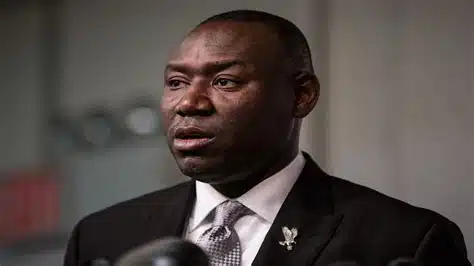What is a Civil Rights Lawyer?
A civil rights lawyer is a legal professional who specializes in handling cases that involve violations of individuals’ civil rights. Civil rights are the basic rights and freedoms that every individual is entitled to, regardless of their race, gender, religion, or any other characteristic. These rights are protected by laws and constitutions in many countries around the world. The role of a civil rights lawyer is to advocate for and defend the rights of individuals who have been subject to discrimination or injustice.
Civil rights lawyers play a crucial role in addressing and rectifying the injustices and inequalities that exist in society. They work tirelessly to ensure that all individuals can fully exercise their rights and have equal access to opportunities and resources. They may represent clients in a wide range of civil rights cases, including cases involving discrimination, police misconduct, employment disputes, education issues, and more.
To become a civil rights lawyer, one must complete the necessary educational path and possess key skills and qualities that are essential for this profession. The educational path typically involves earning an undergraduate degree, followed by attending law school to obtain a Juris Doctor (J.D.) degree. After completing law school, aspiring civil rights lawyers may further specialize in this field through additional coursework, internships, and practical experience.
Educational Path to Becoming a Civil Rights Lawyer
When it comes to pursuing a career as a civil rights lawyer, having the right educational background is crucial. A strong educational path lays the foundation for acquiring the knowledge and skills necessary to become a successful civil rights lawyer. In this blog post, we will delve into the educational path one must take to embark on a career in civil rights law.
Undergraduate Degree
Starting with the basics, obtaining a bachelor’s degree is the first step towards becoming a civil rights lawyer. While there is no specific major required, it is recommended to choose a field of study that nurtures critical thinking, research skills, and an understanding of social justice issues. Majors such as political science, sociology, or pre-law are often chosen by aspiring civil rights lawyers, as they provide a solid foundation for further studies in law.
Law School
After completing a bachelor’s degree, the next step in the educational path of a civil rights lawyer is attending law school. Law school typically lasts for three years and culminates in a Juris Doctor (J.D.) degree. It is important to research and select a law school with a strong reputation for civil rights law programs or courses. During their time in law school, aspiring civil rights lawyers can focus on taking electives related to civil rights law, participating in clinical programs, and joining student organizations dedicated to social justice issues.
Bar Exam and Licensure
Upon graduating from law school, aspiring civil rights lawyers must pass the bar exam in their respective state(s) in order to practice law. The bar exam assesses a candidate’s understanding of legal principles and their ability to apply them in practice. Once the exam is successfully passed, and a license is obtained, individuals can begin practicing law as civil rights lawyers. It is worth noting that each state may have different requirements for admission to the bar, so it is essential to research and fulfill the specific criteria of the desired jurisdiction.
By following this educational path, aspiring civil rights lawyers can acquire the necessary knowledge and skills to excel in their profession. It is a journey that requires dedication, perseverance, and a genuine passion for advocating for justice and equality in society.
Key Skills and Qualities of Civil Rights Lawyers
A civil rights lawyer is a legal professional who specializes in defending and advocating for the rights of individuals and groups who have been subjected to discrimination, injustice, or violations of their civil liberties. These lawyers play a critical role in ensuring that everyone has equal access to justice and protection under the law.
To be an effective civil rights lawyer, certain key skills and qualities are essential. Firstly, a strong understanding of the law, particularly constitutional and human rights law, is crucial. Civil rights lawyers must be well-versed in legislation, legal precedents, and court procedures that pertain to civil rights cases. This knowledge is fundamental in successfully representing clients and challenging systemic injustices.
Additionally, excellent research and analytical skills are vital for civil rights lawyers. They must thoroughly investigate and gather evidence to support their clients’ claims, often diving into complex legal and factual issues. Analyzing the legal implications of such evidence and applying it to the relevant laws requires critical thinking and attention to detail.
Effective communication skills are another essential aspect of being a successful civil rights lawyer. These lawyers must be able to articulate their clients’ concerns and legal arguments persuasively in written briefs, court filings, and oral arguments. They must also have the ability to listen empathetically to their clients’ experiences and concerns, building trust and establishing effective attorney-client relationships.
Ethical integrity is a fundamental quality that civil rights lawyers must possess. These lawyers often find themselves fighting against powerful entities or standing up for marginalized individuals and communities. It is crucial for them to adhere to ethical standards, maintain confidentiality, and prioritize the best interests of their clients.
Lastly, a passion for justice and a strong commitment to social change are key qualities of civil rights lawyers. Their work extends beyond individual cases; it impacts societal norms, policies, and the broader fight against discrimination. Civil rights lawyers often engage in advocacy work, public education, and community outreach to address systemic issues and promote fairness and equality.
In summary, civil rights lawyers possess a unique set of skills and qualities that make them effective advocates for justice and equality. With their knowledge of the law, strong research and analytical skills, effective communication abilities, ethical integrity, and passion for social change, civil rights lawyers play a crucial role in safeguarding the civil liberties of individuals and fighting against discrimination and injustice in society.
Typical Cases Handled by Civil Rights Lawyers
A civil rights lawyer is a legal professional who specializes in protecting and advocating for the rights of individuals in various areas of society. They work to ensure that every individual is treated fairly and equitably, representing clients who have experienced discrimination, harassment, or other violations of their civil rights. The work of civil rights lawyers is diverse and varied, as they handle a wide range of cases. Let’s take a closer look at some typical cases that are handled by civil rights lawyers:
1. Employment Discrimination: Civil rights lawyers frequently handle cases involving employment discrimination. They represent individuals who have been unfairly treated or discriminated against based on their race, gender, age, religion, disability, or other protected characteristics. These lawyers help their clients file complaints with relevant agencies, negotiate settlements, or litigate the case in court.
2. Police Misconduct: Cases of police misconduct are another area where civil rights lawyers play a crucial role. They represent individuals who have been victims of police brutality, false arrests, racial profiling, or other violations of their constitutional rights. Civil rights lawyers work to hold law enforcement agencies accountable and seek justice for their clients.
3. Housing Discrimination: Civil rights lawyers also handle cases involving housing discrimination. They help clients who have been denied housing or faced unfair treatment based on their race, nationality, religion, disability, or other protected characteristics. These lawyers work to enforce fair housing laws and protect the rights of individuals seeking housing opportunities.
4. Education Rights: Another important area of civil rights law is education rights. Civil rights lawyers advocate for students who have faced discrimination, harassment, or denial of educational opportunities based on their race, gender, disability, or other protected characteristics. They work to ensure equal access to education and fair treatment for all students.
In addition to these cases, civil rights lawyers also handle matters related to voting rights, LGBTQ+ rights, freedom of speech, and religious freedom, among others. They are dedicated to fighting for justice and equality, and their work has a profound impact on society. Through their efforts, civil rights lawyers strive to create a more inclusive and equitable world for all.
Impact of Civil Rights Lawyers in Society
Civil rights lawyers play a critical role in society by advocating for and protecting the rights of individuals who have been subjected to discrimination or abuses. Their impact on society is significant, as they work to ensure that everyone is treated equally and has access to justice. Civil rights lawyers are dedicated to fighting against inequality, promoting social justice, and holding those responsible for violations accountable.
One of the key impacts of civil rights lawyers in society is their ability to bring about systemic change. Through their legal expertise and advocacy, these lawyers challenge discriminatory policies and practices that perpetuate inequality. They actively engage in litigation, negotiation, and advocacy efforts to hold institutions and individuals accountable for violating civil rights laws. By doing so, they not only secure justice for their clients but also contribute to creating a more equitable and fair society for all.
Moreover, civil rights lawyers have a profound impact on individual lives. They provide legal representation to individuals who have experienced discrimination based on race, gender, religion, disability, or other protected characteristics. This representation empowers individuals to seek justice, assert their rights, and demand accountability from those who have violated their civil rights. Civil rights lawyers not only help their clients navigate the complex legal system but also provide emotional support and guidance throughout the process.
- Civil rights lawyers also play an essential role in educating the public about their rights and the importance of equality. Through public outreach campaigns, presentations, and community forums, they raise awareness about civil rights issues and promote initiatives aimed at eliminating discrimination in all its forms. By educating communities, civil rights lawyers empower individuals to recognize and challenge discriminatory practices, fostering a more inclusive and equitable society.
- In addition to their direct impact on individuals and communities, civil rights lawyers often serve as catalysts for broader social change. Their work not only results in immediate legal victories but also sets important precedents that can shape future legislation and policies. By taking on high-profile cases and advocating for the rights of marginalized individuals or groups, civil rights lawyers bring attention to systemic inequalities and can influence public opinion, ultimately leading to societal transformation.
| Impact Areas | Description |
|---|---|
| Equality and Justice | Civil rights lawyers strive to create a more equal and just society by fighting against discrimination and advocating for the enforcement of civil rights laws. |
| Systemic Change | By challenging discriminatory policies and practices, civil rights lawyers contribute to systemic change that benefits not only their clients but also society as a whole. |
| Individual Empowerment | Through legal representation and advocacy, civil rights lawyers empower individuals to assert their rights and seek justice for violations they have suffered. |
| Public Education | Civil rights lawyers raise awareness about civil rights issues and educate the public on the importance of equality, contributing to a more informed and engaged society. |
| Social Transformation | By challenging systemic inequalities and advocating for marginalized individuals, civil rights lawyers can influence public opinion and contribute to broader social change. |
In conclusion, civil rights lawyers have a profound impact on society by actively working towards equality, justice, and social change. Their dedication to protecting the civil rights of individuals and communities helps create a more inclusive and equitable society. Through their legal expertise, advocacy efforts, and public outreach, civil rights lawyers bring attention to systemic inequalities and challenge discriminatory practices. The impact of civil rights lawyers extends beyond individual cases, as their work sets important precedents and can lead to broader societal transformation. Their efforts pave the way for a more just and equal future for all.
Frequently Asked Questions
What is a Civil Rights Lawyer?
A Civil Rights Lawyer is a legal professional who specializes in cases related to civil rights violations. They advocate for individuals or groups who have experienced discrimination or infringement on their constitutional rights.
What is the educational path to becoming a Civil Rights Lawyer?
To become a Civil Rights Lawyer, you must typically complete a Bachelor’s degree, followed by attending law school to obtain a Juris Doctor (J.D.) degree. After law school, aspiring lawyers must pass the bar exam in their desired jurisdiction to gain licensure to practice law.
What are the key skills and qualities of Civil Rights Lawyers?
Civil Rights Lawyers should possess strong analytical and research skills to interpret laws and regulations. They need excellent communication skills to effectively advocate for their clients and negotiate settlements. Additionally, strong empathy, cultural competence, and a commitment to social justice are important qualities for Civil Rights Lawyers.
What are some typical cases handled by Civil Rights Lawyers?
Civil Rights Lawyers can handle cases involving discrimination based on race, gender, religion, age, or disability. They also work on cases related to police misconduct, wrongful arrests, employment discrimination, and violations of constitutional rights, such as freedom of speech or assembly.
What is the impact of Civil Rights Lawyers in society?
Civil Rights Lawyers play a crucial role in safeguarding individuals’ civil liberties. They help ensure that everyone has equal access to opportunities and fair treatment. Through their advocacy, Civil Rights Lawyers contribute to promoting social justice, equality, and a more inclusive society.
How can I find a Civil Rights Lawyer for my case?
You can find a Civil Rights Lawyer by conducting an online search, contacting your local bar association for referrals, or seeking recommendations from friends, family, or trusted organizations that work on civil rights issues.
What are the potential outcomes in a civil rights lawsuit?
Potential outcomes in a civil rights lawsuit can vary depending on the specific case. If successful, the plaintiff may be awarded compensation for damages, injunctive relief to stop ongoing violations, or court orders requiring the defendant to change their policies or practices. In some cases, settlements or negotiated agreements are reached between the parties involved.



